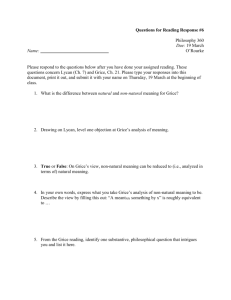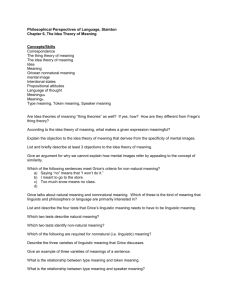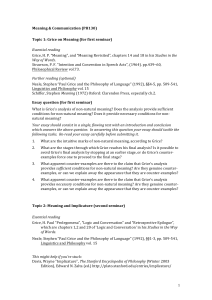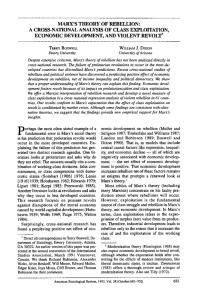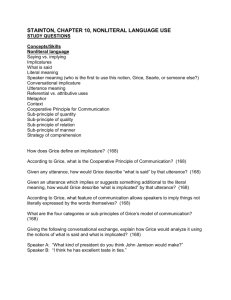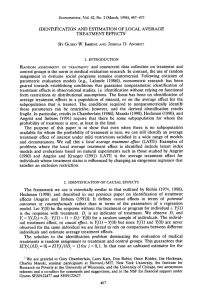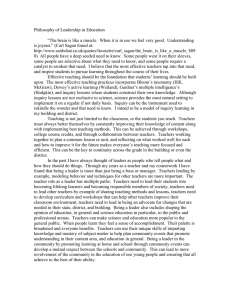The Messages We Send G. R. F. Ferrari 26 May 2009
advertisement
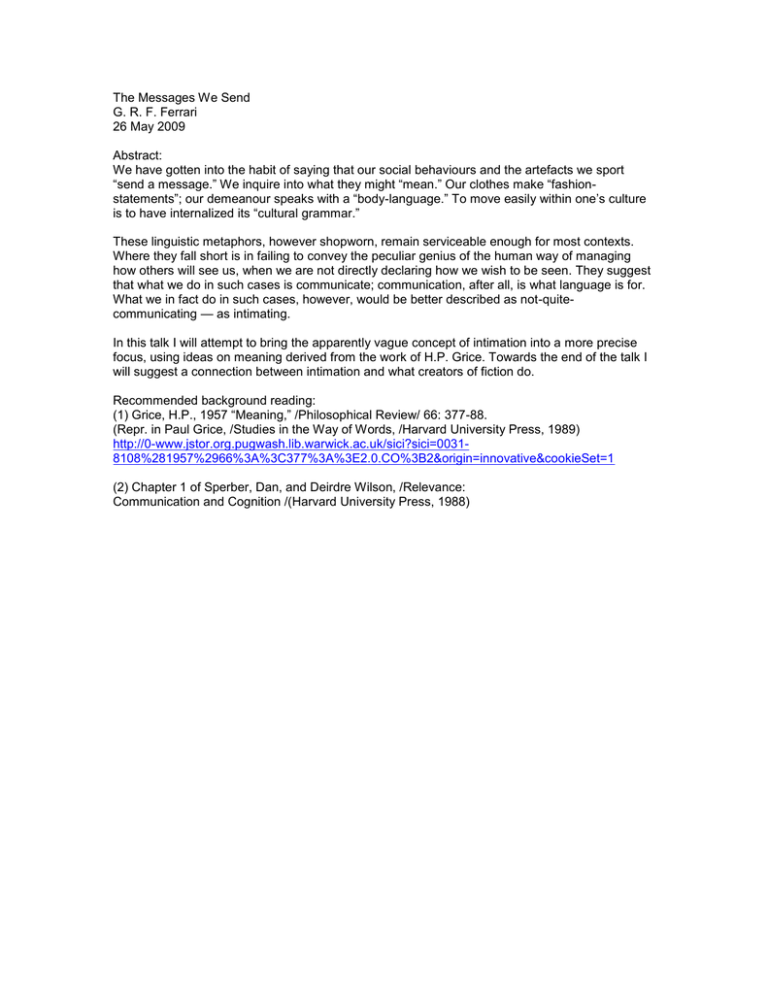
The Messages We Send G. R. F. Ferrari 26 May 2009 Abstract: We have gotten into the habit of saying that our social behaviours and the artefacts we sport “send a message.” We inquire into what they might “mean.” Our clothes make “fashionstatements”; our demeanour speaks with a “body-language.” To move easily within one’s culture is to have internalized its “cultural grammar.” These linguistic metaphors, however shopworn, remain serviceable enough for most contexts. Where they fall short is in failing to convey the peculiar genius of the human way of managing how others will see us, when we are not directly declaring how we wish to be seen. They suggest that what we do in such cases is communicate; communication, after all, is what language is for. What we in fact do in such cases, however, would be better described as not-quitecommunicating — as intimating. In this talk I will attempt to bring the apparently vague concept of intimation into a more precise focus, using ideas on meaning derived from the work of H.P. Grice. Towards the end of the talk I will suggest a connection between intimation and what creators of fiction do. Recommended background reading: (1) Grice, H.P., 1957 “Meaning,” /Philosophical Review/ 66: 377-88. (Repr. in Paul Grice, /Studies in the Way of Words, /Harvard University Press, 1989) http://0-www.jstor.org.pugwash.lib.warwick.ac.uk/sici?sici=00318108%281957%2966%3A%3C377%3A%3E2.0.CO%3B2&origin=innovative&cookieSet=1 (2) Chapter 1 of Sperber, Dan, and Deirdre Wilson, /Relevance: Communication and Cognition /(Harvard University Press, 1988)
